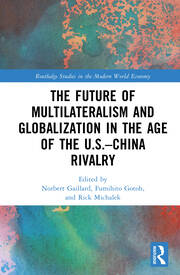ABSTRACT
As the global economy sits at a crossroad between connectivity-driven globalization and strategic decoupling, technical standardization provides a valuable measure of where we are headed. Long thought of as a benign, apolitical defining of baseline processes, products, and services, standardization has ballooned into a field of geopolitical competition, particularly as the United States, China, Europe, and others wrestle over technological leadership in the industries of the future. Driven largely by private enterprise initiatives, the West has long held the high ground in setting technical standards. While China is a newcomer to the field, it has grand ambitions of becoming a premier purveyor of global standards and has laid the groundwork for building out a more China-centered ecosystem through efforts such as the Belt and Road Initiative. In this context, the “twin transitions” toward a low-carbon and digital future, where many standards remain to be set, offer an opportunity for Beijing. Ultimately, whether China chooses a collaborative path with the West on standards development, how the latter respond to China’s initiatives, and whether multistakeholder, consensus-based standardization processes can resist the push and pull of geopolitics will go a long way to determining the degree of cohesion and fragmentation in the global economy for decades to come.


